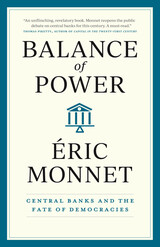
“A remarkable book capable of reshaping what one takes philosophy to be.”
—Cora Diamond, Kenan Professor of Philosophy Emerita, University of Virginia
Could there be a logical alien—a being whose ways of talking, inferring, and contradicting exhibit an entirely different logical shape than ours, yet who nonetheless is thinking? Could someone, contrary to the most basic rules of logic, think that two contradictory statements are both true at the same time? Such questions may seem outlandish, but they serve to highlight a fundamental philosophical question: is our logical form of thought merely one among many, or must it be the form of thought as such?
From Descartes and Kant to Frege and Wittgenstein, philosophers have wrestled with variants of this question, and with a range of competing answers. A seminal 1991 paper, James Conant’s “The Search for Logically Alien Thought,” placed that question at the forefront of contemporary philosophical inquiry. The Logical Alien, edited by Sofia Miguens, gathers Conant’s original article with reflections on it by eight distinguished philosophers—Jocelyn Benoist, Matthew Boyle, Martin Gustafsson, Arata Hamawaki, Adrian Moore, Barry Stroud, Peter Sullivan, and Charles Travis. Conant follows with a wide-ranging response that places the philosophical discussion in historical context, critiques his original paper, addresses the exegetical and systematic issues raised by others, and presents an alternative account.
The Logical Alien challenges contemporary conceptions of how logical and philosophical form must each relate to their content. This monumental volume offers the possibility of a new direction in philosophy.

This book mounts a sustained attack on ideas that are dear to many practitioners of analytic philosophy. Charles Travis targets the seductive illusion that—in Wittgenstein’s terms—“if anyone utters a sentence and means or understands it, he is operating a calculus according to definite rules.” This book rejects the idea that thoughts are essentially representational items whose content is independent of context. In doing so, it undermines the foundations of much contemporary philosophy of mind.
Travis’s main argument in Unshadowed Thought is that linguistic expressions and forms are occasion-sensitive; they cannot be abstracted out of a concrete context. With compelling examples and a thoroughgoing scrutiny of opposing positions, his book systematically works out the implications of the work of J. L. Austin, Hilary Putnam, and John McDowell. Eloquently insisting that there is no particular way one must structure what one relates to, no one way one must represent it, Unshadowed Thought identifies and resists a certain strain of semantic Platonism that permeates current philosophy—a strain that has had profoundly troubling consequences for our ideas about attitudes and beliefs and for our views about what language might be.
READERS
Browse our collection.
PUBLISHERS
See BiblioVault's publisher services.
STUDENT SERVICES
Files for college accessibility offices.
UChicago Accessibility Resources
home | accessibility | search | about | contact us
BiblioVault ® 2001 - 2024
The University of Chicago Press









